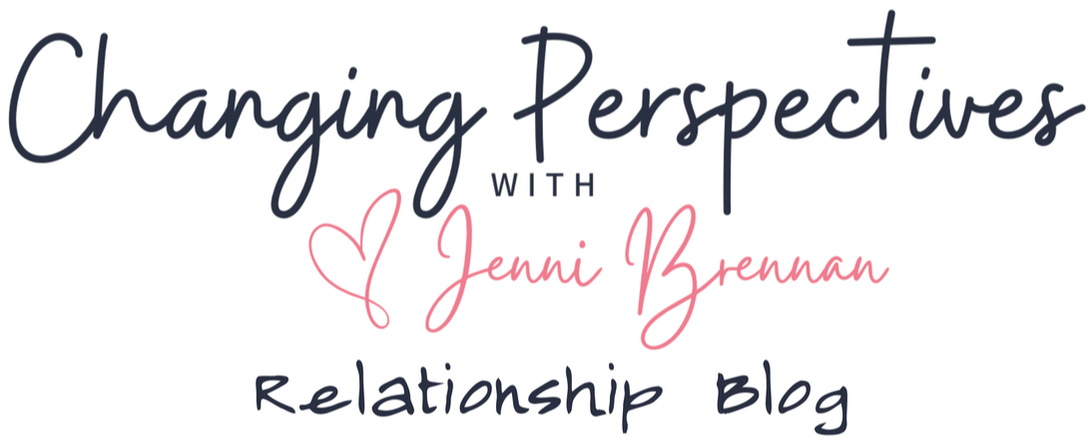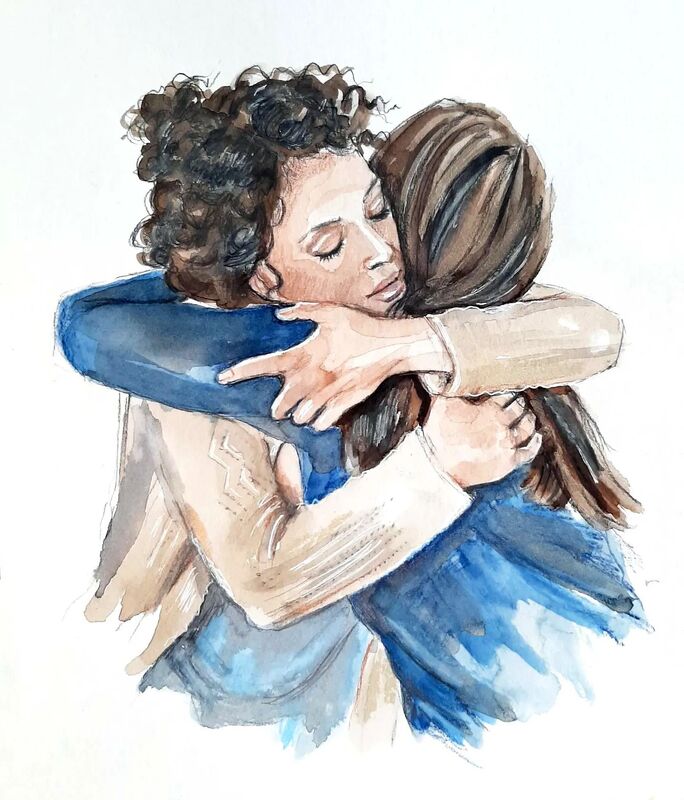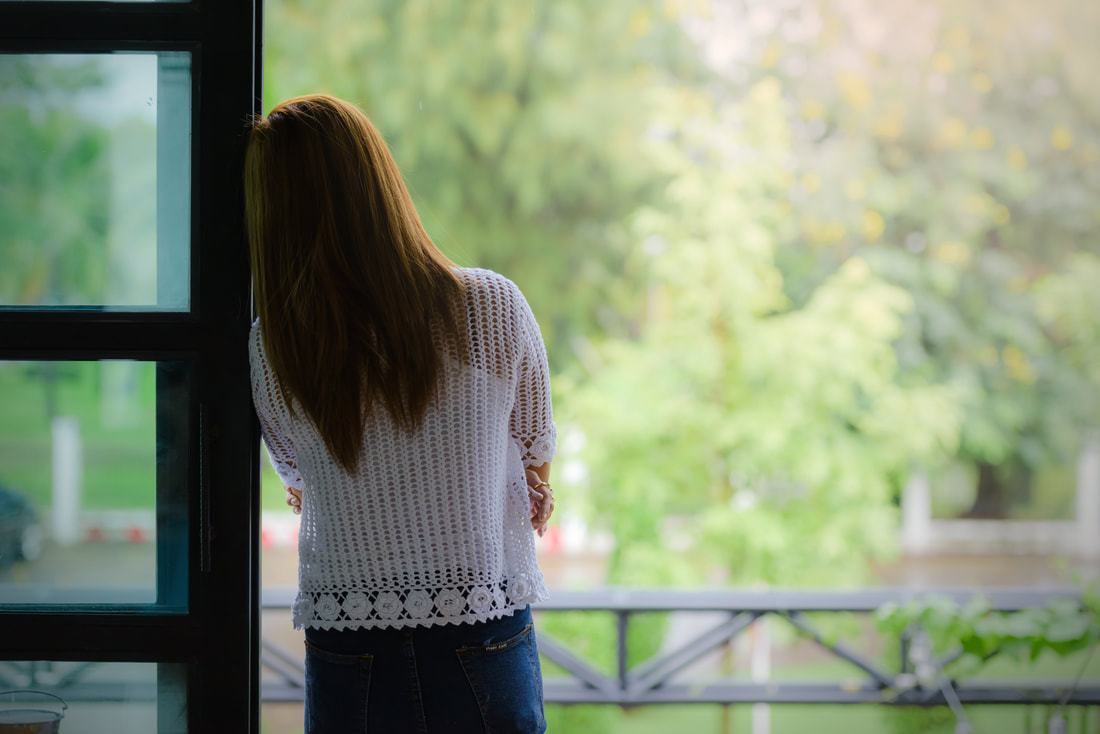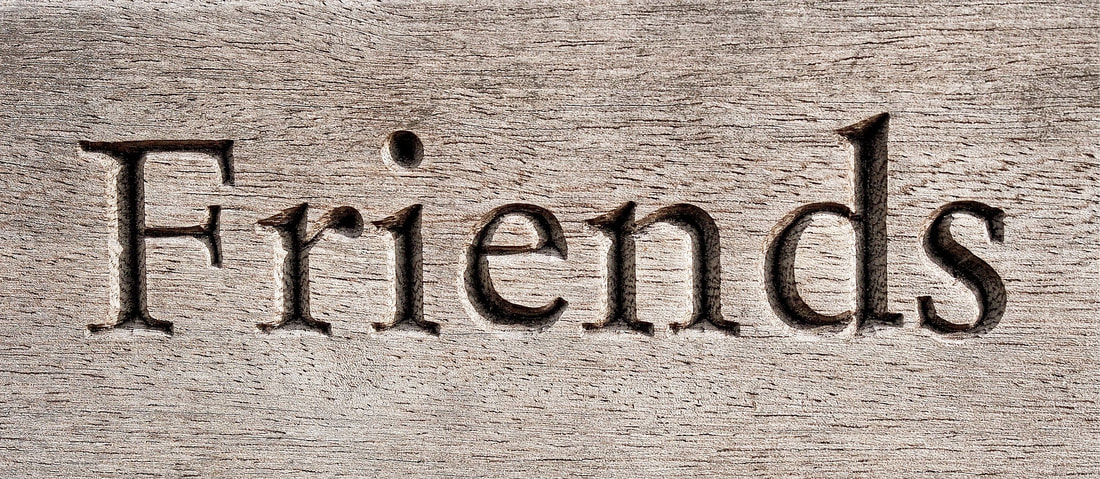|
Can I let you in on a secret about friendships in adulthood?
Sometimes they are really freaking hard. Like, really freaking hard. But so often the friends we have in our adult years are the only thing saving us from hitting rock bottom. The truth is that even the strongest friendship bonds are not forged in stone. No, just as life is ever changing, friendships will always ebb and flow. Sometimes your closest friends fade away into the background of your life. Sometimes background friends somehow become part of your inner circle. Sometimes brand new people enter your life and become the friends you never knew you needed. Sometimes your heart aches because it misses the friendships that used to be but are no more. No matter where you are in your adult friendship journey, don't overthink it and don't dwell in the past. Instead, hold on tight and ride the friendship wave. Welcome the ones that find their way to you. Send peace to the ones who fade away. Love the friends that are there right now. Illustration: Art to Remember
0 Comments
I saw a meme the other day and the message was pretty basic--
If you can’t take a minute out of your day to say hi to me, then I’m not making time for you in my life. Period. The end. I get it, in theory. If life were black and white, all good or all bad, all happy or all sad, all easy or all hard, then it would make sense to apply that logic to a friendship. But, most of life happens within the gray—the space between black and white. And I am a gray friend. Sometimes I am a bad friend. Sometimes I am a good friend. Sometimes I forget to text back my friends. Sometimes I check in with them when it really counts. Sometimes I mean to reach out and say hi and then before I know it, I’m crawling into bed at the end of the day, my mind filled to the brim with all the things I didn’t get done. Sometimes I show up. Sometimes I decide deliberately to not reach out because it’s all I can do to keep the lid on my emotions from bubbling over. Sometimes I let that lid go and reach out anyways. Yes, I am a gray friend—but that doesn’t mean I don’t love the people in my life. It just means that sometimes life is more complicated than a simple meme, more complicated than bad or good, more complicated than right or wrong. Sometimes life just is weird and amazing, messy and wonderful, full of grief and full of joy. All of those things—all at the same time. And so, friendships can be all of those things too. Younger me didn’t get it—but older me gets it now. Now I try to give my friends some grace about living in the gray. Just because they don’t return a text or don’t reach out to say hi might not mean they don’t like me. It might mean they are too busy right now. It might mean they are struggling. It might mean they need to take a break from peopling. It might mean they forgot. It might mean one of the million of reasons that exist in the gray. So, I’ll keep on not keeping score and trying to give the important people the benefit of life’s gray spaces . . . And I’ll keep hoping people do the same for me. (Read this post on Facebook) I’m a B-list friend.
I’m not a top tier or A-list friend. I’m not a best friend. I’m no one’s favorite person. Sure, I’m included sometimes, and I know my friends love me. But, the list of things a B-list friend isn’t included in is painfully long: Girl's night? Only if it's a group of five or more. Dinners with other couples? Only if it’s a birthday dinner where a room has been rented at a restaurant or function facility and the guest list is long. Weekends away? Only if it’s a really large group. Saturday night gatherings? Only if we happen to run into the host in the supermarket as they are picking up food for the event. Don’t get me wrong, my friends engage in small talk with me when we see each other in public. Occasionally I’m even included in a group text with a few of them, but it’s almost always a group text with a purpose like “Where is the basketball game for the boys tonight?” or “Do you know what time the fundraiser is this weekend?” Sometimes they reach out just to check in and they show up when in counts—like when I went through a breast cancer scare last year. But, then they disappear. These aren’t mean women. Not at all. They aren’t trying to hurt my feelings or deliberately exclude me. In fact, they often tell me I’m really “sweet” and “thoughtful” and “funny” and they are so “lucky” to have me in their lives. I’m just not in anyone’s inner circle. And it hurts. A lot. It’s not fun to be a B-list friend. When you are the B-list friend, it’s painful to watch a group of your friends walk into a restaurant without you as you drive by on your way home from work. It hurts to hear all about how much fun your friends had last weekend at yet another “Sunday Funday” without you. It’s uncomfortable to sit with your friends at a youth sporting event for our children and listen to them plan their weekend away at the beach—a weekend without you. I’ve tried to be the planner myself—inviting them over for girl’s nights, or to our house for barbeques, or out for dinner. They come, they laugh, they tell me how much they love me, they say, “We should do this more often,” and then they move on with their A-list friends and forget about me. I’ve tried to talk to some of them about it, trying to see if I have done or said something offensive or hurtful so I can make it better. But, talking about it almost always backfires into me being labeled “too sensitive” or they tell me I’m “imagining things.” They probably are right. I am too sensitive. I wish I could let all the exclusions roll off my back. I wish I could see their photos together on social media and not get a twinge of jealousy and sadness. I wish I could see them walk into school fundraisers together and not feel a pit of sadness in my stomach. I’ve explored what it could be about me that is just not fun to be around. I’m kind. I’m thoughtful. I reach out to others often to check in on them when I hear their parents are ill, they are going through medical testing, have vaguebooked on social media about challenges in their lives, or just to say hi. But no matter how much effort I put in, it’s never enough. I’m tired of being the B-list friend. I’ve tried hard enough. I’ve cried too many tears. I’ve let my feelings be hurt too many times. It’s time to recognize that I am on the A-list for plenty of people: my children, my husband, my family. I matter to enough people. Enough people love me. It’s time I love myself and accept my own worth. It’s time to stop measuring my value by how much effort my friends put into our relationship. Even if I’ll never be good enough, or funny enough, or whatever enough to make it into anyone else’s inner circle, if I take a step back and look inside my own life, I can see my own inner circle is pretty amazing. I am enough—even as a B-list friend. This piece was originally published 10/9/20 on Her View From Home: https://herviewfromhome.com/the-b-list-friend/ I’m a B-list friend.
I’m not a top tier or A-list friend. I’m not a best friend. I’m no one’s favorite person. Sure, I’m included sometimes, and I know my friends love me. But, the list of things a B-list friend isn’t included in is painfully long: Girl’s night? Only if it’s a group of five or more. Dinners with other couples? Only if it’s a birthday dinner where a room has been rented at a restaurant or function facility and the guest list is long. Weekends away? Only if it’s a really large group. Saturday night gatherings? Only if we happen to run into the host in the supermarket as they are picking up food for the event. Don’t get me wrong, my friends engage in small talk with me when we see each other in public. Occasionally I’m even included in a group text with a few of them, but it’s almost always a group text with a purpose like “Where is the basketball game for the boys tonight?” or “Do you know what time the fundraiser is this weekend?” Sometimes they reach out just to check in and they show up when in counts—like when I went through a breast cancer scare last year. But, then they disappear. These aren’t mean women. Not at all. They aren’t trying to hurt my feelings or deliberately exclude me. In fact, they often tell me I’m really “sweet” and “thoughtful” and “funny” and they are so “lucky” to have me in their lives. I’m just not in anyone’s inner circle. And it hurts. A lot. It’s not fun to be a B-list friend. Originally published on Her View From Home. Click HERE to read the full article. Get over yourself. Stop being so sensitive. Let it go. You’re too needy. Those were the message I received the other day before I had even left my bed.
Published on Her View From Home. Click HERE to read the full article. Here’s to the friends who accept me for who I am.
Here’s to the friends who don’t judge me - even when I probably should be judged. Here’s to the friends who reach out to me when I fall silent. Here’s to the friends who laugh with me about the silly things and cry with me over the painful things. Here’s to the friends who accept my flaws and embrace my uniqueness. Here’s to the friends who love my babies like they are their own. Here’s to the friends who see me, even when I don’t want to be seen. Here’s to the friends who show up, even when I am unbearable to be around. Here’s to the friends who teach me how to be a better person. Here’s to all the friends - past, present, and future - who add to the story of my life. Thank you for being you and letting me be me. Friendships in our adulthood can be complicated and challenging to navigate. I’m not sure why this has come as a surprise to me — I suppose I mistakenly assumed that all the hard relationship stuff would be over once I was done with middle and high school. I thought I would graduate from high school and leave all the bad hair, fashion faux pas, and drama behind.
I was wrong. Adulthood is just the next level of complicated and adult friendships are just the next level of challenging. One of the most difficult aspects of adult friendships can be deciding when to end one. Sometimes, though, the decision you need to make can be pretty clear, especially if your friend is demonstrating any of the 7 tell-tale signs that the friendship is a toxic one: 1. They ghost you If you’ve ever been ghosted by someone, you know how much it hurts. One minute you are a part of that person’s life and the next it’s as if you never existed. Phone calls, text messages, invitations, and even acknowledgements in public just come to a screeching halt. Even if there have been hurt feelings or mistakes in a friendship, resorting to completely ignoring someone is just plain childish. 2. They are talking about you If word is getting back to you that your friend is talking about you in a negative way to other people or is sharing private details about you to others without your permission, that behavior indicates a lack of respect for you. You deserve better. You should be able to trust your friends to come to you directly with concerns and to be able to keep your confidential information private. 3. They hold grudges or keep score If your friend is someone who routinely brings up mistakes you made from weeks, months, or years ago to justify their own poor behavior, they are telling you that your relationship is not one that is unconditional. They are keeping score and if you mess up (which you will, because you are a human), they could hold that over your head in the future. Who needs friends that aren’t willing to forgive you for mistakes? 4. They only reach out to you when they want something When you really take a step back and evaluate your relationship, who is doing the initiating of texts, phone calls, and invitations? Are you always the one checking in on them, following up on them, inviting them to spend time together, or sharing stories? Do they only initiate contact with you when they need support or a favor? You deserve friends who give as much as they take. 5. They try to show off or make you feel jealous When you are together, either alone or in a group, does your friend often make it a point to share details, photos, videos, or stories from parties and events to which you were not invited? Are they sure to highlight how close they are with some of your other friends? Actions like that may be excusable from children, but not from adult friends. 6. They make you cry more than they make you laugh If you look back over the entirety of your relationship, do you have more memories of feeling hurt, angry, or ignored than you do of sharing joy with your friend? What is the point of a friendship if it brings you mostly pain and hurt? 7. People are telling you to walk away Are other people around you noticing some of the behaviors listed above? Are they asking you what is going on with the two of you? Are they encouraging you to cut ties and walk away? Are they telling you that you deserve to be treated better? They are right, you know. If any of these signs resonate with you and sound like your friend, it may be time for you to make a decision about where to go next in your relationship. Be honest with yourself — do you ever display any of these behaviors yourself? What level of responsibility can you accept for the current state of your friendship? Do you want to attempt to repair the relationship, change the relationship, or walk away completely from the relationship? It’s important to remember that life is too short to allow yourself to be mistreated, disrespected, belittled, or made to feel invisible. Often, when we make the decision to walk away from a friendship and we turn our attention elsewhere, we find friendships that are much more deserving of our attention, trust, and time. It’s ok to give yourself permission to want more from the people in your life. You deserve to be happy. “Get over yourself.”
“Stop being so sensitive.” “Let it go.” “You’re too needy.” That was the message I received the other day, before I had even left my bed. Ouch. I had decided to take a few minutes to read through my social media pages before officially starting my day. As I laid there groggily scrolling through my friends’ updates, I came across an article on friendship. Without a moment’s hesitation, I opened the article. In the words of Julia Roberts, “Big mistake. Big. Huge!” The overall theme of the article was pretty clear: sensitive friends take too much time and energy. The author of the article had come to the conclusion that it was time to turn away from those relationships, choosing instead to focus on friends that were more secure in themselves and didn’t require so much attention. To me, a sensitive person, the words stung. I identified with the friends the author was letting go of because they were “too sensitive.” And, just like a sensitive person, I took the article to heart. I allowed my interpretation of the article to set the tone for my entire day. The words echoed in my head as I got my kids ready for school and myself ready for work. The words brought back all the feelings that I’ve struggled with for so much of my life, struggles that I see lots of others face too: the push to conform and be something or someone different to make others happy; the push to hide who you really are because who you really are is just not right. The truth is, it can be difficult to be my friend. It takes a lot for me to actually let a new friend in and then once I do, I have pretty high standards. I want to be included in things. I want my friends to be honest with me, even if it’s difficult. I also need my friends to understand that sometimes, as an introvert, I get overwhelmed with too many social activities, crowded places, or as my niece calls it, when things are “too people-y”. Sometimes I retreat and go dark for a bit. Sometimes my own depression and anxiety rear their ugly heads and I can’t get out of my own way. I need friends who won’t judge me during those times or tell me to “just be happy.” I also need my friends to take ownership and apologize when they’ve done something that hurts me, whether intentionally or unintentionally. I am a complete juxtaposition of a person at times. To be friends with me is a lot to ask of someone. I get that. But, does any of that make me a bad person? A bad friend? Am I wrong to feel the way I feel? Am I out of line to approach friendship the way I do? Am I too sensitive? I think for most of my life, I answered “Yes” to all of those questions and allowed myself to feel shame for who I am as a person. But, as I contemplated that article, I began to wonder not just about my own potential shortcomings but those of the author. What about her? Could it be that she and all of the people that liked and shared the article were wrong? Is there something wrong with them? Are they out of line to approach friendship that way? Are they too abrasive? Are they not sensitive enough? Which of us is right? Which of us is the better person? I’ve chewed on this question for the past few weeks, weighing out the benefits and drawbacks to each personality style and approach to friendship. While being the way I am has certainly posed challenges to those in my life and to myself, it also has probably led me to where I am in life. It probably makes me a better clinician. It probably makes me better able to understand the pieces of my children that are just like me. It probably has allowed me to feel things, not just bad things, but good things as well, on a deeper level than others that aren’t quite so sensitive. It probably is what allows some of my friendships to feel so very deeply rooted. Would I really want to be a version of myself that didn’t have these components? I don’t think so. Does that mean that I am fully grown and have reached enlightenment and can’t improve as a person? Absolutely not. I think I can be someone who still wants to improve and grow AND can also still be someone who can be proud of who I am. So, which of us is right and which of us is the better person? Neither. In the weeks since I allowed that article to punch me in the gut, I’ve come to believe that friendships come with a price, just like most things in life. When it comes to friendships, all of us have a budget of emotional energy to invest in friendships and it is up to us to decide how we spend it. We can decide whether the cost is worth the return. For some people, what it costs to be my friend might be too much for too little in return or they just may choose to use their budget differently. The author is probably one of those people and that’s ok with me now. I get it. Her decision doesn’t mean that anything is wrong with me. It doesn’t mean that I actually need to stop being so sensitive or need to get over myself and my feelings. It just means that we aren’t a good fit for each other. So, to those of you that have been told you are too sensitive, let me tell you this: you keep on being you. To those of you that don’t want to be friends with someone like me, you keep being you too. Neither one of us is wrong. Neither one of us is better than the other. Neither one of us is more well suited for life or for friendship. It turns out that what some may see as our flaws or weaknesses may actually be our greatest strengths and assets. |
RelationshipsRelationships take effort and need to continuously be renegotiated over the years. These articles explore friendships and romantic partnerships - both their importance and how to improve them. Archives
June 2023
Categories
All
|
Sign Up For the Changing Perspectives Newsletter
Changing Perspectives with Jenni Brennan is supported by its audience.
When you purchase through links on this site, an affiliate commission may be earned. Learn More.
When you purchase through links on this site, an affiliate commission may be earned. Learn More.
Changing Perspectives Copyright © 2023









 RSS Feed
RSS Feed
